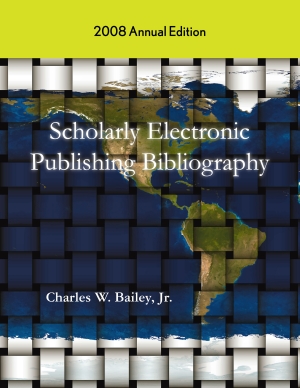ACRL has added materials from its Scholarly Communication 101: Starting with the Basics Workshop to its Scholarly Communication Toolkit.
Here's an excerpt from the press release:
The Association of College and Research Libraries (ACRL) is extending the reach of the "Scholarly Communication 101: Starting with the Basics" workshop by adding related materials to its popular Scholarly Communication Toolkit. The materials—including short videos, presentations templates and handouts—were developed for the half-day workshop offered at the ACRL 14th National Conference in Seattle and traveling to five locations around the country this summer (http://www.ala.org/ala/newspresscenter/news/pressreleases2009/april2009/acrlscroadshowhosts.cfm). Now librarians can make use of these tools to enhance their own knowledge or adapt them to offer related workshops on their own campuses. The Scholarly Communication Toolkit is available online at http://www.acrl.ala.org/scholcomm/.
Developing a basic understanding of scholarly communication issues should be a high priority for every librarian. Enhancing understanding of how scholars work along with the systems, tools and technology to support the evolving work of the creation, personal organization, aggregation, discovery, preservation, access and exchange of information in all formats is one of six strategic priorities for 2009-13 developed by the ACRL Board of Directors (http://www.ala.org/ala/mgrps/divs/acrl/about/whatisacrl/index.cfm). The newly developed tools support this strategic priority, with a focus on new methods of scholarly publishing and communication, copyright and intellectual property and economics along with open access and openness as a principle.

